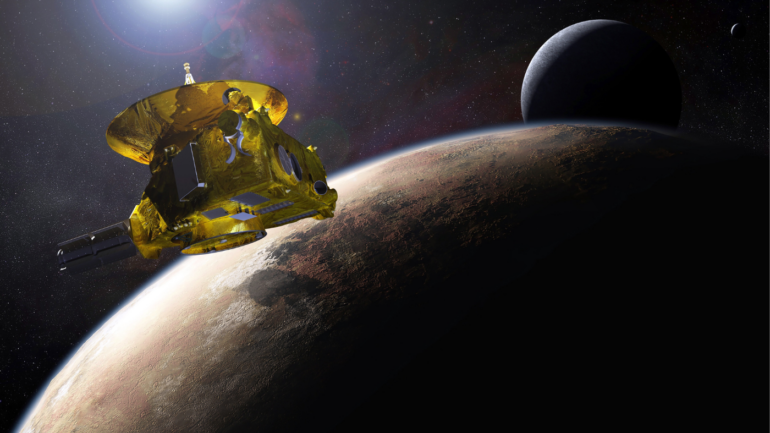You probably heard the announcement in 2006 that Pluto was no longer considered a planet, as the International Astronomical Union voted to make the definition of “planets” more specific.
Even with the current definition of planets, some astronomers and planetary scientists did not unanimously agree.
Some people consider the classification scheme to limit the number of planets, while others think it is incomprehensible with unclear terms.
Listen to the episode of Huh? Science Explained here:
So, what even is a planet? If the definition keeps changing, will there be more planets in the future?
On this episode of Huh? Science Explained, Evrim Yazgin, a Cosmos journalist with a Master’s in Physics from the University of Melbourne, talks about how we define a planet and why Pluto was kicked out of the planet club.
Pluto has been slapped with the epithet dwarf planet and our Solar System family shrank to eight planet siblings,”
Yazgin said.
Yazgin said there had been an ongoing debate about Pluto’s placement on the planetary pedestal.
There is even a petition calling for an eighth day of the week called “Pluto Day” to make up for Pluto’s relegation.
Before the 1700s, we only knew six planets, including the one we call home. In order from the sun, they are Mercury, Venus, Earth, Mars, Jupiter and Saturn,”
Yazgin said.
These planets are all plainly visible to the naked eye and have been watched by humans for millennia.”
Put your thinking caps on, folks. Huh? Science Explained is here, the twice weekly podcast brought to you by LiSTNR and Cosmos. Hosted by Cosmos’ very own science journos, this is the podcast that will answer all of life’s questions – in just 10 minutes. Hear it on the LiSTNR app now.
